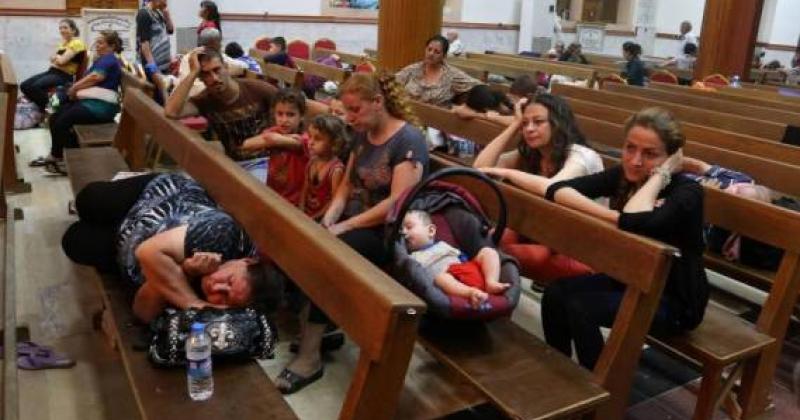Aid to the Church in Need’s Religious Freedom in the World Report – 2014 shows a steep decline. Most of the countries where serious violations are witnessed, are Muslim. Christians are still the most persecuted.
In the 61 out of 196 countries where change was witnessed, this has almost always been for the worst: the situation has improved in six countries and worsened in 55. A sharp decline emerges in the Religious Freedom in the World Report – 2014 published by Aid to the Church in Need. This is the 12th edition of the report which began to be published in 1999 and analyses the degree to which religious freedom is respected across 196 countries.
Violence committed in the name of religion continues to dominate the international media scene, according to the 2014 Report presented this morning in Rome. There is a strong sense that religious terrorism is not only widespread but is actually rising steeply and the latest report sadly confirms this. The condition of religious minorities is worsening in almost every single country. Sometimes, situations are worsened by legal or constitutional discrimination or by religious hostility that is often linked to ethnic or tribal tensions. In other cases religious groups oppress or attempt to eliminate other groups or there is an authoritarian state that tries to limit the activities of a specific religious group.
Changes were recorded in 61 out of the 196 countries analysed. However, an improvement in the situation of religious minorities was only witnessed in six of these, while in 55 countries the situation has worsened. This means that in almost 30% of the countries examined between October 2012 and June 2014, things are looking bleaker for religious groups.
The report found that the degree to which religious freedom was violated in 26 countries was medium or high. But no changes were witnessed in these countries over the past two years. Take these 26 countries and add the 55 others where the situation has worsened and what you see is that religious freedom is restricted or declining in just over 40% countries (81 out of 196).
The degree of religious freedom violations is medium to high in 56 countries, that is a little over 30% of the total. This is regardless of whether the situation has improved, worsened or remained unchanged in the period examined.
There are 20 countries where there is a high degree of religious freedom violation, in other words there is no such freedom. There include the 14 countries where religious persecution is linked to Islamic extremism: Afghanistan, Saudi Arabia, Egypt, Iran, Iraq, Libya, Maldives, Nigeria, Pakistan, Republic of Central Africa, Syria, Somalia, Sudan and Yemen; six countries where persecution is carried out by authoritarian regimes: Azerbaijan, Myanmar, China, North Korea and Uzbekistan. The report emphasises that the majority of countries featuring in the list of nations where serious religious freedom violations have been registered, are Muslim.
In general, in 116 out of the 196 countries analysed (almost 60%), there is a worrying disregard for religious freedom.
Improvements are often the result of local initiatives rather than progress made on a national level, the report found. In the six countries which did witness an improvement, the picture is not rosy. Cuba, the United Arab Emirates, Iran and Qatar are still classed as places where there is a medium to high degree of religious freedom violations. Meanwhile, Taiwan and Zimbabwe respectively are classed as countries where the degree of religious freedom violation is low or high and the situation is serious.
Christians are still the world’s most persecuted religious minority, partly because of their widespread presence and because there is a relatively significant number of them. But Muslims also suffer considerable persecution and discrimination at the hands of other Muslim groups or authoritarian regimes.
In Western countries, religious tensions are on the rise due to recent phenomena such as aggressive atheism, liberal secularism and waves of migrants and refugees who belong to faiths and cultures that are different to those of the host country. Religious freedom is in decline in Western countries where there is a Christian majority or Christian tradition. There are two factors that contribute to this: firstly, opinions differ as to the role religion should play in the public arena and secondly, the open attitude toward religious freedom is threatened by increasing concerns regarding religious extremism.
In North America conscientious objection is under threat. In Latin America the obstacles are the openly secularist or atheist political regimes that limit the freedoms of all religious groups.
Asia is officially home to the most severe religious freedom violations. An increase in fundamentalism is witnessed in countries where there is a majority religion, not just Muslim, but also Hindu and Buddhist fundamentalism.
The most worrying trend in Africa is the growth of Islamic fundamentalism.
